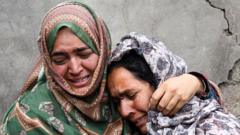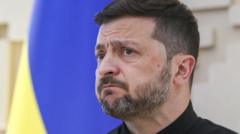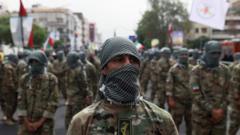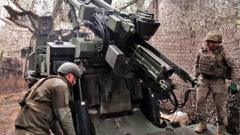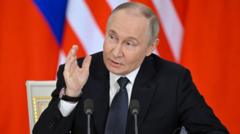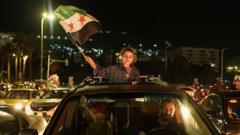The first peace talks in three years between Ukraine and Russia faced significant confusion as delegations were split between different cities. While President Zelensky sought to initiate diplomatic discussions, President Putin's delegation remained less engaged, underlining deep-rooted divergences in conflict resolution approaches.
Confusion Marks Resumption of Ukraine-Russia Peace Talks

Confusion Marks Resumption of Ukraine-Russia Peace Talks
Both Ukrainian and Russian delegations met in Turkey amid uncertainty over their negotiations and the absence of high-level leadership.
Ukraine and Russia have tentatively resumed peace talks in Turkey for the first time in three years, but confusion marred the initial interactions between the two delegations. Ukrainian President Volodymyr Zelensky traveled to Ankara seeking to engage with Turkey's president, while a midlevel Russian delegation arrived in Istanbul without President Vladimir Putin's direct involvement.
The day unfolded with the two sides essentially operating in separate locations, raising doubts over the feasibility of an actual meeting. Zelensky mentioned plans to send a more focused delegation to Istanbul, led by Ukraine's defense minister, although the scheduling conflicts suggested ongoing logistical hurdles.
Contextualizing these talks, the stark differences in negotiation stances became apparent. President Zelensky advocates for an immediate and unconditional cease-fire which would pave the way for peace negotiations. In contrast, Putin, emboldened by perceived tactical advantages in the conflict, remains steadfast that military action must continue until Russia meets its objectives.
Adding to the diplomatic chaos, former U.S. President Donald Trump commented that progress between the two countries hinges on a meeting between himself and Putin, indicating that external political dynamics could also influence the course of these negotiations. Despite the tumultuous start, both Russian and Ukrainian officials indicated that discussions might be postponed to the following day, leaving the possibility of diplomatic progress open but uncertain.

